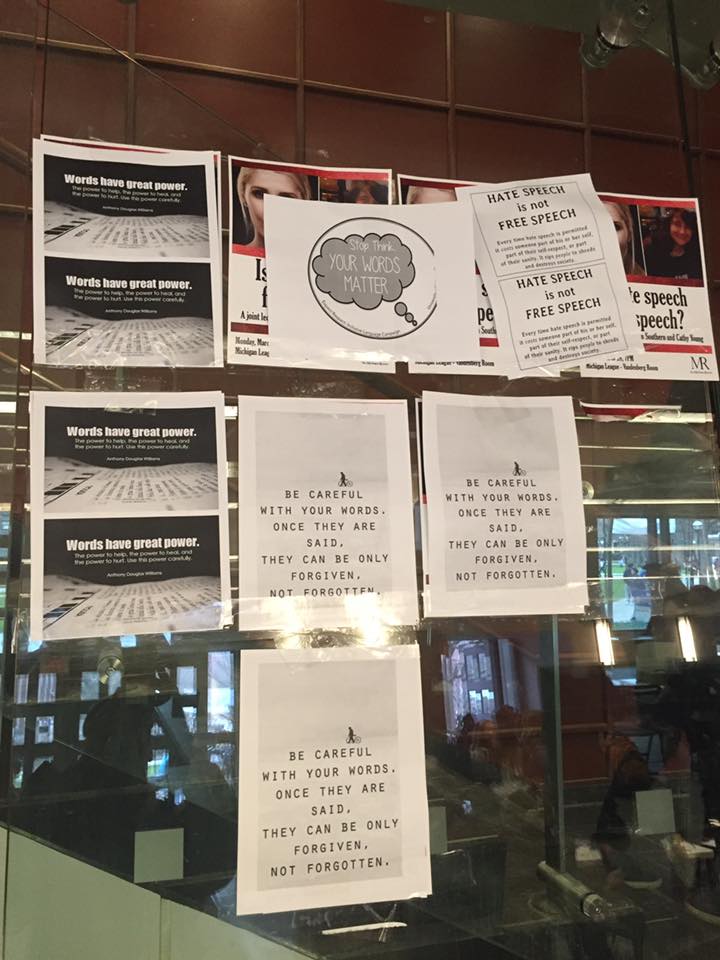If hosting an event that asks the question “Is hate speech free speech” is suggestive of violence, then free speech is in a much more perilous state than even staunch defenders of speech might have imagined.
During the day on Monday, March 28, flyers advertising the event “Is Hate Speech Free Speech: A joint lecture by Lauren Southern and Cathy Young,” sponsored by the Michigan Review, were covered by different flyers warning that “words matter” and advising the need to “be careful.”
Flyers often overlap on the posting wall in Mason Hall, the go-to place for students to advertise events. The deliberate targeting of an event is a rare occurrence. Given the current campus climate regarding free speech, however, this response is not surprising. Students are not only more complacent with the policing of their speech by others, but also are increasingly advocating for self-censorship. Indeed, one of the flyers targeting the free speech event tonight bore the logo of the “Inclusive Language Campaign” which reads “Stop Think. Your Words Matter.”

The heart of the misunderstanding, however, seems to be that in most cases, what may be referred to as hate speech is really protected speech. Indeed, some students on America’s coddled campuses do not even consider ideas that they do not like as speech at all, but violence. This seems to be exactly what the vandals did when they posted in reference to hate speech, “It rips people to shreds and destroys society.” Equating speech or hate speech with violence, however, not only detracts from real instances of violence, but also ignores the protections offered by the first amendment that safeguard the free exchange of ideas. If hosting an event that asks the question “Is hate speech free speech” is suggestive of violence, then free speech is in a much more perilous state than even staunch defenders of speech might have imagined. Simply put, calling speech “violence” is another form of censorship and a justification for Orwellian policing. That censorship is truly the destruction of society. Of course, some speech such as threats and legally defined harassment are not protected, but these are entirely different instances than offensive language and challenging ideas.
For those who are still confused about why free speech is important or have lingering doubts about the necessary protections afforded to even offensive speech, the Michigan Review “hopes to see you at the event tonight.” Bring questions and enjoy the exercise of free speech. In the meantime, while poster vandals’ reminder that words “can only be forgiven, not forgotten” is cute, the Michigan Review hopes that attendees will take that to heart and not forget the importance of free speech.